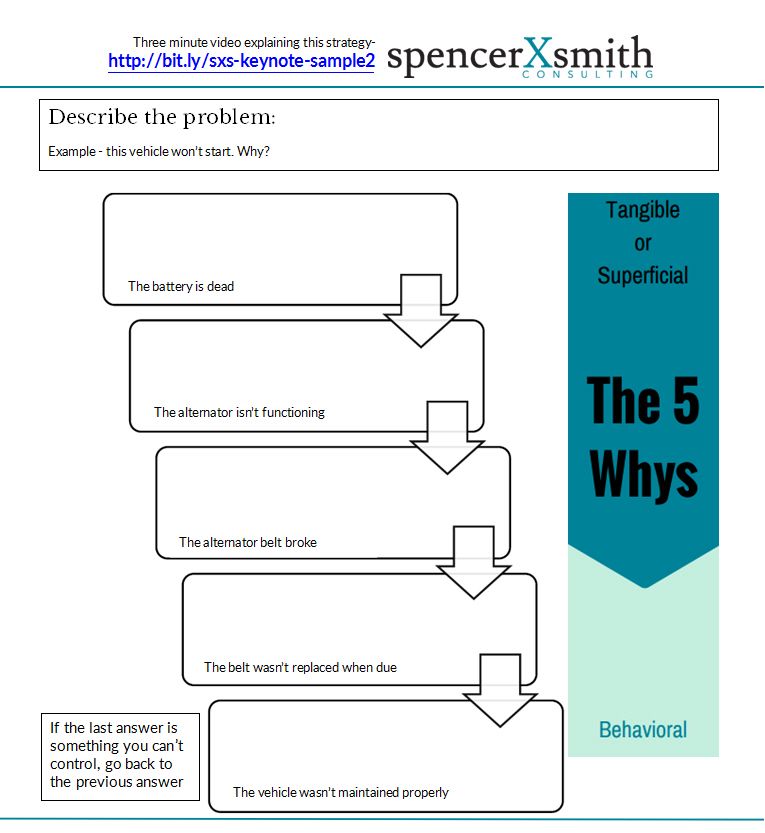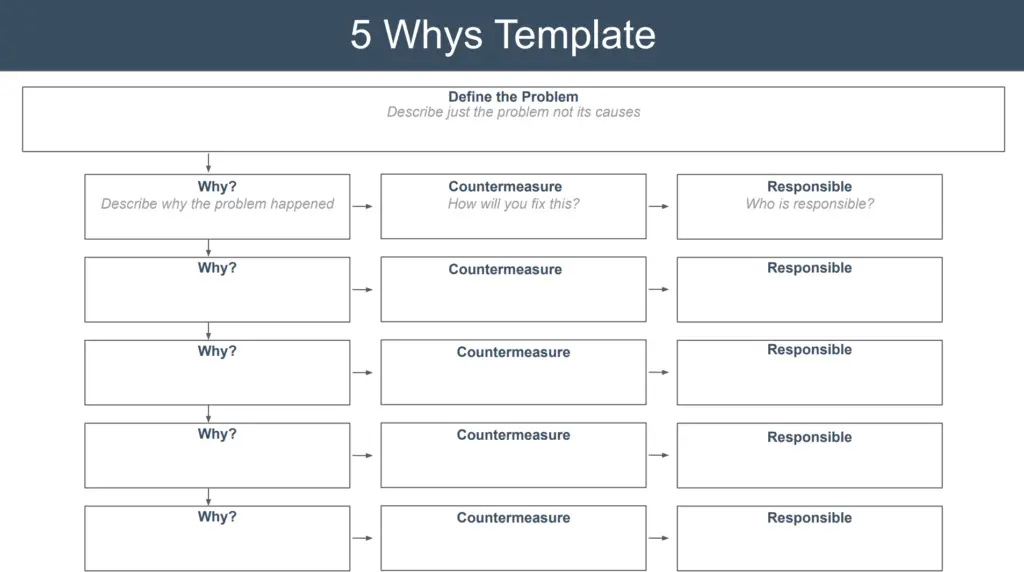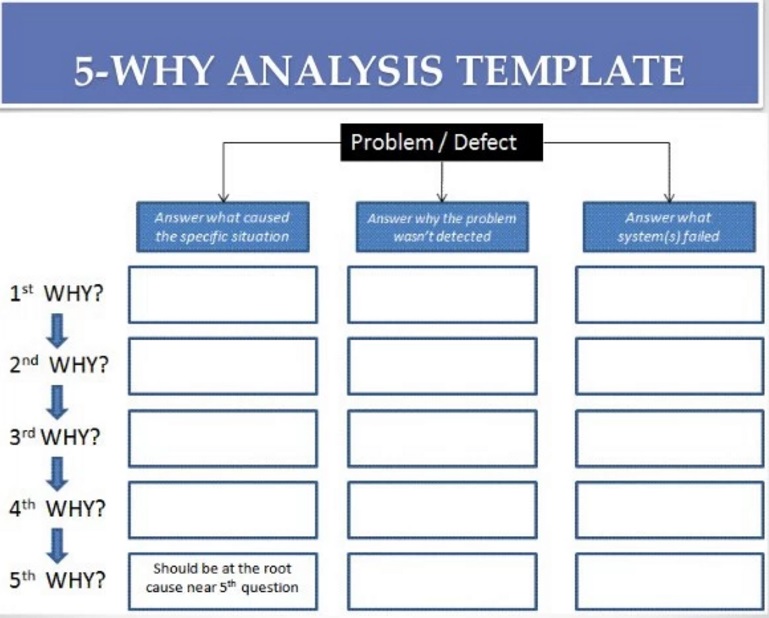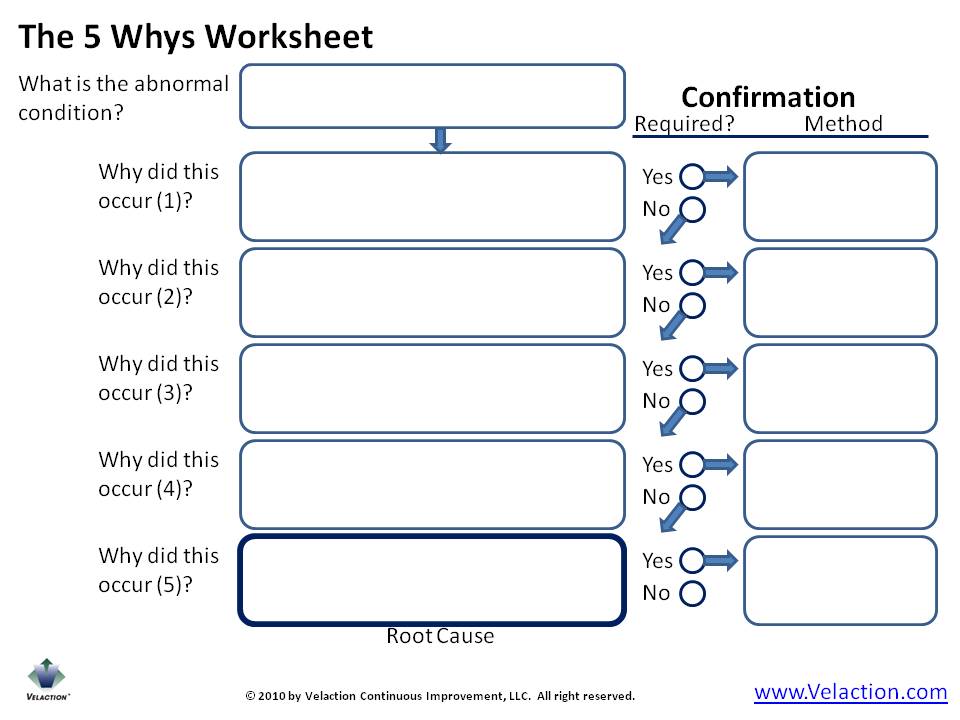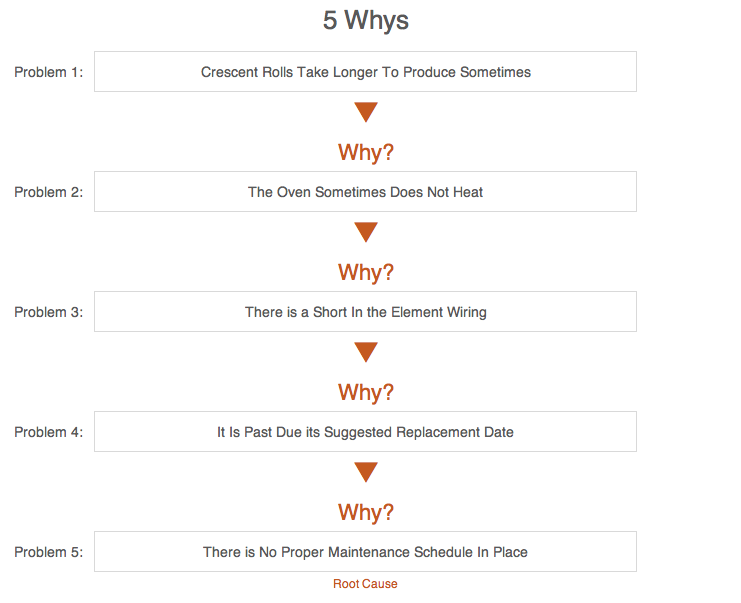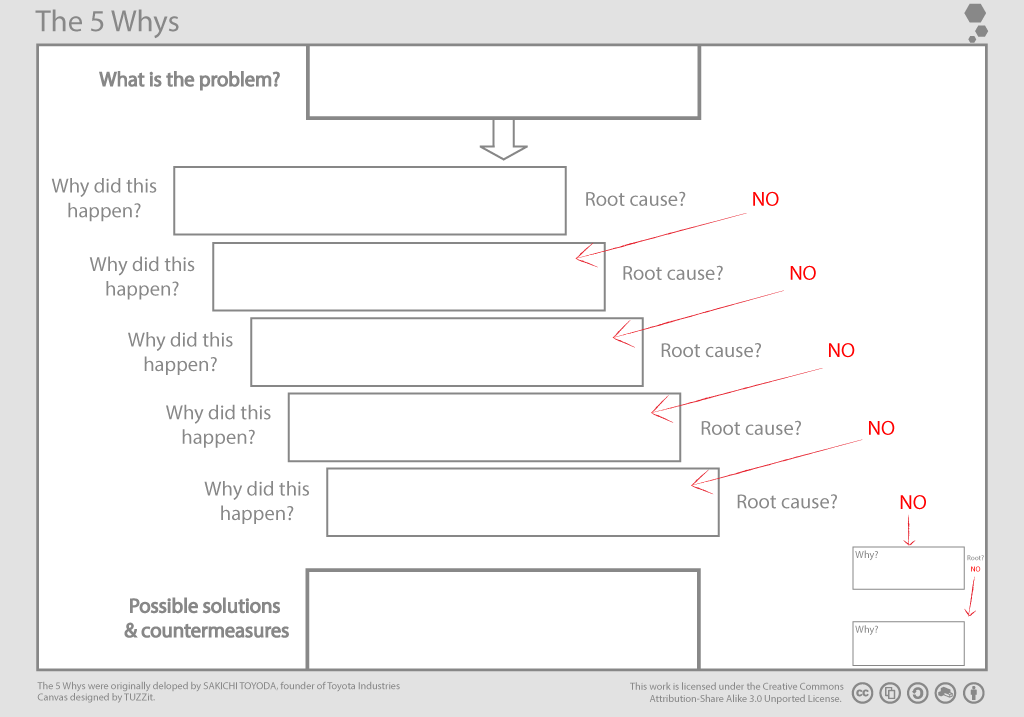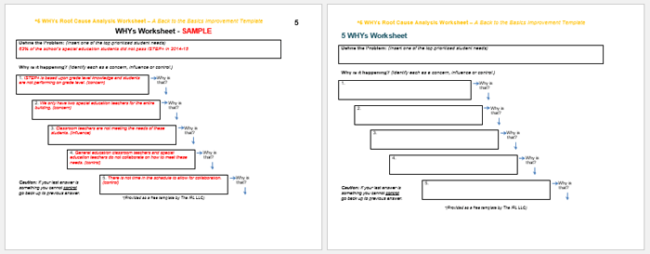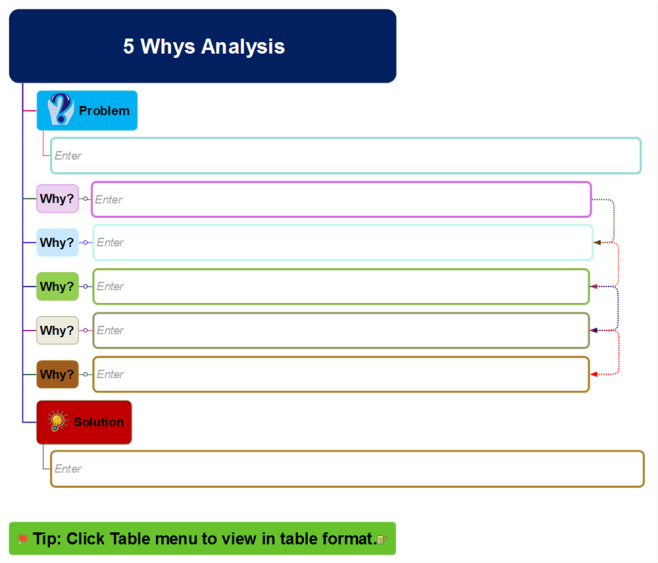5 Whys Template Word
5 whys template word - It’s the best possible path to success. How to write smart goals using 5 whys. Basically, you are taking your problem and creating a procedural chart using symbols. You need to make sure your business is able to consistently improve with the use of customer feedback. Each letter stands for an attribute that will help you refine your goal. Hazop is a structured and systematic examination of complex, planned, or existing processes or operations used to identify and evaluate problems that may represent risks to personnel equipment. Projectmanager’s free root cause analysis template for word. Use this six sigma tool along with the 5 whys template to determine root causes. Developing the skills for a fabulous career isn’t just a nice idea. It includes a detailed problem outline, a timeline, a “why” question analysis, diagrams to help illustrate the process, sections for proposing and evaluating possible solutions, and a.
Reach 65,000+ lean & six sigma professionals every week by sponsoring our newsletter. The 5 whys of root cause analysis. 5 whys root cause analysis template. One of the benefits of using a fishbone diagram is the visual layout, which makes it easy to compile and view information, and see the relationships between different elements. Each of these ‘boxes’ is then connected with.
The 5 Whys template spencerXsmith
Introduction to hazop analysis process template: Reach 65,000+ lean & six sigma professionals every week by sponsoring our newsletter. Projectmanager’s free root cause analysis template for word.
The 5 Whys Find the Root Cause of a Problem Fast
It includes a detailed problem outline, a timeline, a “why” question analysis, diagrams to help illustrate the process, sections for proposing and evaluating possible solutions, and a. Use this six sigma tool along with the 5 whys template to determine root causes. Each of these ‘boxes’ is then connected with.
The most Powerful way to perform Root Cause Analysis Food Safety Experts
Basically, you are taking your problem and creating a procedural chart using symbols. You need to make sure your business is able to consistently improve with the use of customer feedback. The methodology requires a certain level of detail.
Pin on 5 Whys Template By exMcKinsey Consultants
The methodology requires a certain level of detail. Most practical doe explained (with template) set smart goals to better manage time; Download our smart goals template for word and google docs to get you on track to construct meaningful goals within a defined framework.
The 5 Whys Form
Projectmanager offers dozens of free project management templates,. Basically, you are taking your problem and creating a procedural chart using symbols. It’s the best possible path to success.
5 Why Template
How to write smart goals using 5 whys. Projectmanager offers dozens of free project management templates,. One of the best techniques when performing a root cause analysis is called the “five whys.” this approach is simply asking “why?” over and over again.
5 Whys Template Excel templates, 5 whys, Templates
The methodology requires a certain level of detail. This cause mapping template combines elements of the root cause analysis template, the six sigma dmaic template, and the 5 whys root cause analysis template. Each of these ‘boxes’ is then connected with.
Five Whys tool and template TUZZit
Projectmanager offers dozens of free project management templates,. What better way to identify the root cause of issues that are hindering your company’s progress than by using our premium 5 whys root cause analysis template. One of the best techniques when performing a root cause analysis is called the “five whys.” this approach is simply asking “why?” over and over again.
24+ Root Cause Analysis Templates (Word, Excel, PowerPoint and PDF)
Each letter stands for an attribute that will help you refine your goal. What better way to identify the root cause of issues that are hindering your company’s progress than by using our premium 5 whys root cause analysis template. Projectmanager offers dozens of free project management templates,.
5 Whys Analysis Template MindMapper mind map template Biggerplate
It’s the best possible path to success. You need to make sure your business is able to consistently improve with the use of customer feedback. Each of these ‘boxes’ is then connected with.
Hazop is a structured and systematic examination of complex, planned, or existing processes or operations used to identify and evaluate problems that may represent risks to personnel equipment. Projectmanager’s free root cause analysis template for word. It includes a detailed problem outline, a timeline, a “why” question analysis, diagrams to help illustrate the process, sections for proposing and evaluating possible solutions, and a. How to write smart goals using 5 whys. Writing smart goals can be challenging. Most practical doe explained (with template) set smart goals to better manage time; Basically, you are taking your problem and creating a procedural chart using symbols. What better way to identify the root cause of issues that are hindering your company’s progress than by using our premium 5 whys root cause analysis template. Use this six sigma tool along with the 5 whys template to determine root causes. Hazop (hazard and operability study) systematically identifies possible hazards in a system, identifying operability.
The 5 whys of root cause analysis. Reach 65,000+ lean & six sigma professionals every week by sponsoring our newsletter. 5 whys root cause analysis template. Developing the skills for a fabulous career isn’t just a nice idea. This cause mapping template combines elements of the root cause analysis template, the six sigma dmaic template, and the 5 whys root cause analysis template. Each symbol has its own meaning, such as a statement box or a decision box. Projectmanager offers dozens of free project management templates,. One of the best techniques when performing a root cause analysis is called the “five whys.” this approach is simply asking “why?” over and over again. Introduction to hazop analysis process template: Each of these ‘boxes’ is then connected with.
It’s the best possible path to success. You need to make sure your business is able to consistently improve with the use of customer feedback. Each letter stands for an attribute that will help you refine your goal. Download our smart goals template for word and google docs to get you on track to construct meaningful goals within a defined framework. One of the benefits of using a fishbone diagram is the visual layout, which makes it easy to compile and view information, and see the relationships between different elements. The methodology requires a certain level of detail.
